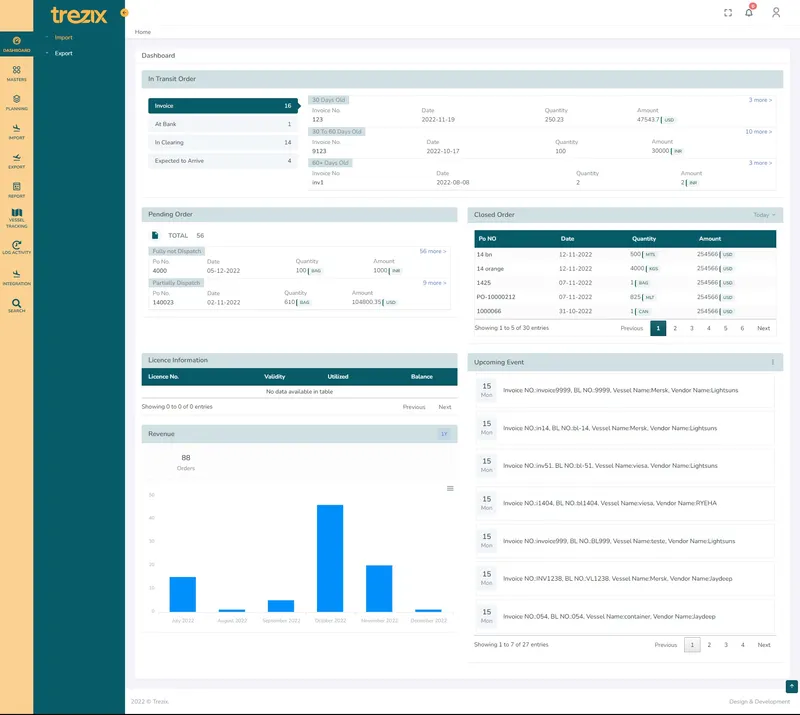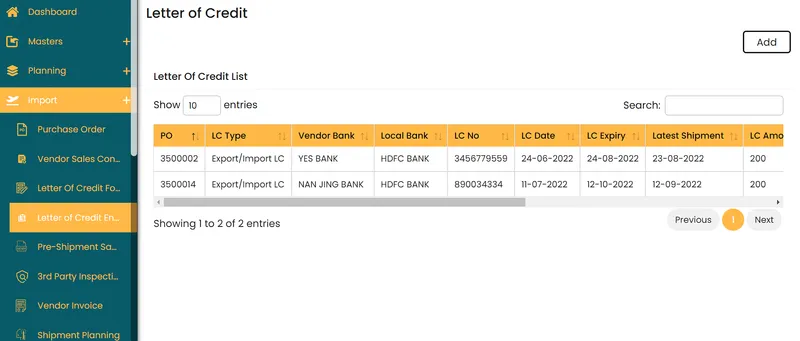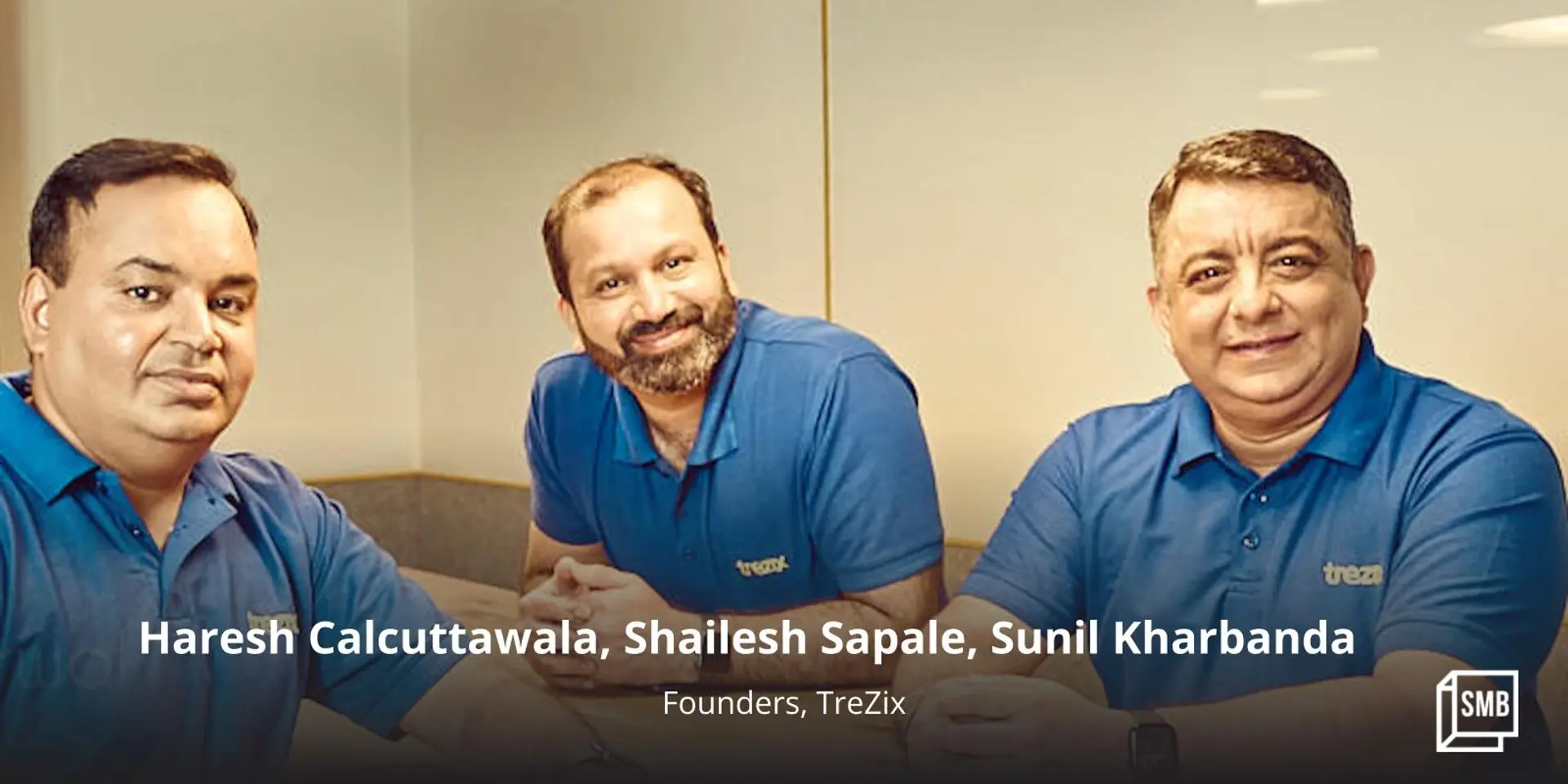Surat-based TreZix is helping MSMEs with import-export processes
The company is digitising the import-export process for SMEs and automating collaboration with stakeholders, facilitating faster access and scale. It is currently working with 15 MSMEs and plans to onboard 250 companies in FY24.
Key Takeaways
- TreZix's aim is to simplify and automate the import-export process.
- It is concentrating on three elements: speed, automation, and regulatory compliance.
- It is integrating different stakeholders of the process on a single platform.
While working with ERP (Enterprise Resource Planning) software companies, Haresh Calcuttawala, Sunil Kharbanda, and Shailesh Sapale discovered many issues that frequently afflicted companies involved in the export-import business.
“After identifying a few common problems, we realised there was no one-stop solution to make the import-export process more efficient,” says Kharbanda.
“ERP solutions are more structured and serve the internal requirements of an organisation, whereas 75% of the stakeholders in the import-export process are external to the organisation,” he adds.
This sparked a discussion among the trio about how the process could be managed more efficiently within an organisation. Although they recognised these issues in large enterprises, they soon realised that these were much bigger issues in micro, small, and medium enterprises (MSMEs).
To simplify and automate the import-export processes, they established in January 2022. The Surat-based SaaS (software as a service) company launched its products in the market in November 2022.

Product's desktop view
The company is working to achieve “ease of doing business” by digitising the import-export process and automating stakeholder collaboration and compliances. This, according to TreZix, will assist MSMEs in improving efficiency in operations, reducing processing time, and optimising working capital.
In the last two months, the company has onboarded 15 MSMEs onto the platform and is concentrating on three elements of the import-export process: speed, automation, and regulatory compliance. It plans to add 250 customers in FY24.
Finding solutions
TreZix started looking at areas where the time to process was huge or where the failure rate was high among companies. For example, it takes around 45 to 90 days to take the goods out of ports or customs, and the demand may reduce in this time, says Kharbanda.
“Humongous research went into it. Every failure point was our point of research,” says Calcuttawala.
“We cover all the members of the ecosystem involved in the process, making sure the clients do not have to go on any other platform. We give an end-to-end solution,” he adds.
Banks, logistics, and CHA (Customs House Agent) are among the various stakeholders the firm has attempted to integrate on a single platform.
TreZix also observed that MSMEs were facing major compliance issues as new schemes and obligations for export and import continue to emerge, making it difficult for companies to stay updated.
Banks also expect MSMEs to submit documents on time. TreZix saw scope for improvement in these areas and decided to leverage Letters of Credit (LC) and save on remittance.

TreZix SaaS product desktop view
“Major issue around logistics, banks, and customs is the source of data. It does not go from a single source. Discrepancies happen, which lead to delays,” says Kharbanda.
The company decided to create a product that integrates all stakeholders on a single platform and assist businesses with documentation that can serve as a single source of information, making the process more efficient and faster.
“And that’s where we wanted to get this pure collaboration model in place so that they can connect to their banks, clearing agents, can track shipping (of their containers), and can connect to DGFT (Directorate General of Foreign Trade), to government portals, and so on,” says Kharbanda.
According to the company, the current export and import process is manual and time-consuming, contributing to extensive losses and working capital management issues.
“MSMEs need to be faster so that they can scale up, make more profits, and manage cash flows. Keeping all these in mind, we designed a framework and presented it to the Government of Gujarat in 2020,” says Kharbanda.
After receiving the government's approval, the company approached the Chamber of Commerce, which assisted them in connecting with MSMEs.
“The role of MSMEs is going to be huge in reaching $2 trillion in exports and imports that the country is aiming for by 2025. It can be done only when these pain areas are worked on,” says Kharbanda.
Product pricing and increasing its discoverability
TreZix is now working to raise awareness about its product among MSMEs. It spent the first three months, from November to December, on pricing, and started onboarding MSMEs in February, 2023.
The company currently offers three packages--Basic, Professional, and Advanced.
The basic package is designed for very small companies, which have around 50 invoices. The package starts with Rs 4 lakh per annum (LPA).
“Companies with a turnover of Rs 100 to Rs 250 crore generally go for this,” says Kharbanda.
The professional package covers 100 invoices and is for companies having Rs 250 crore to Rs 1,000 crore turnover.
The advanced package starts from Rs 8 lakh per annum, and is for companies with a turnover of more than Rs 1,000 crore and covers unlimited invoices.
“However, it is not black and white. Sometimes, small companies also go for the advanced package depending on how they look at their growth,” says Kharbanda.
TreZix clients are mostly based in Gujarat, and some in Maharashtra and Kerala. It is currently exporting to and importing from various parts of the world.
The company is also raising awareness about the product by working closely with associations like the Chamber of Commerce, DGFT (Directorate General of Foreign Trade) commissioners, and Chartered Accountants, who are connected to MSMEs.
It is planning to launch EXIM GPT where customers can know more about different elements of the process like understanding HSN (Harmonized System of Nomenclature) codes that tells what products they can export to different countries.
Competitors in the space
“Uplexis and IVL are among the companies working in the same area, but their focus is purely documentation,” says Kharbanda.
“What we bring to the table is our ability to collaborate and the ability to cluster the document depending on what customer or supplier needs,” he adds.
The keyword search designed in the software works on documents of all formats like PDF, JPEG, PNG, and so on. For example, if the client wants to search details regarding X, a trucker, all the documents having their information will appear.
It also does duty calculation and integrates it into the documentation.
“We are focusing solely on the journey of our importers and exporters so they can focus on their core business. This will be like an accelerator for them,” says Calcuttawala.
True Colours, one of its clients, saw a 30% increase in the efficiency of operations after adopting TreZix. “If they could do 3 shipments earlier, now they go up to 7 to 8,” says Kharbanda.
Using OCR (Optical Character Recognition) offered by their products, Sumilan Industries, one of their clients, could reduce their duplication by 50%.
Plans ahead
The company plans to work with various stakeholders closely in the coming months. It has tied up with ICICI Bank as its Trade Emerge partner and plans to tie-up with Kotak Bank, Axis Bank, and the State Bank of India.
In 2025, TreZix plans to go global starting with the US, the UK, and MENA (Middle East and North America) region.
It also plans to add more APIs (Application Programming Interface) to the system and is currently testing six APIs.
Edited by Megha Reddy



